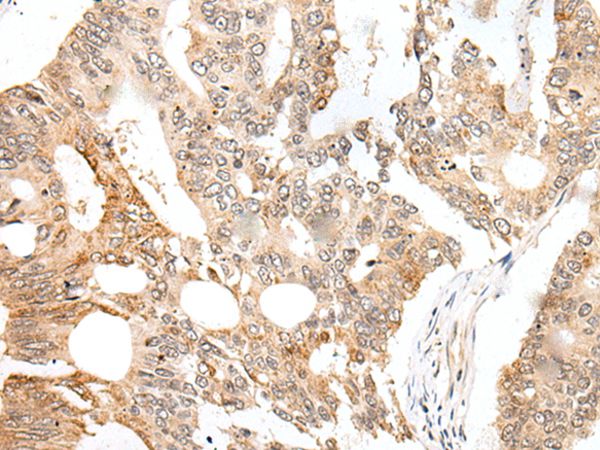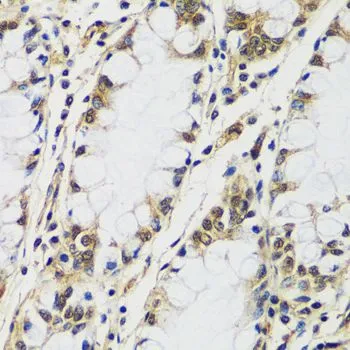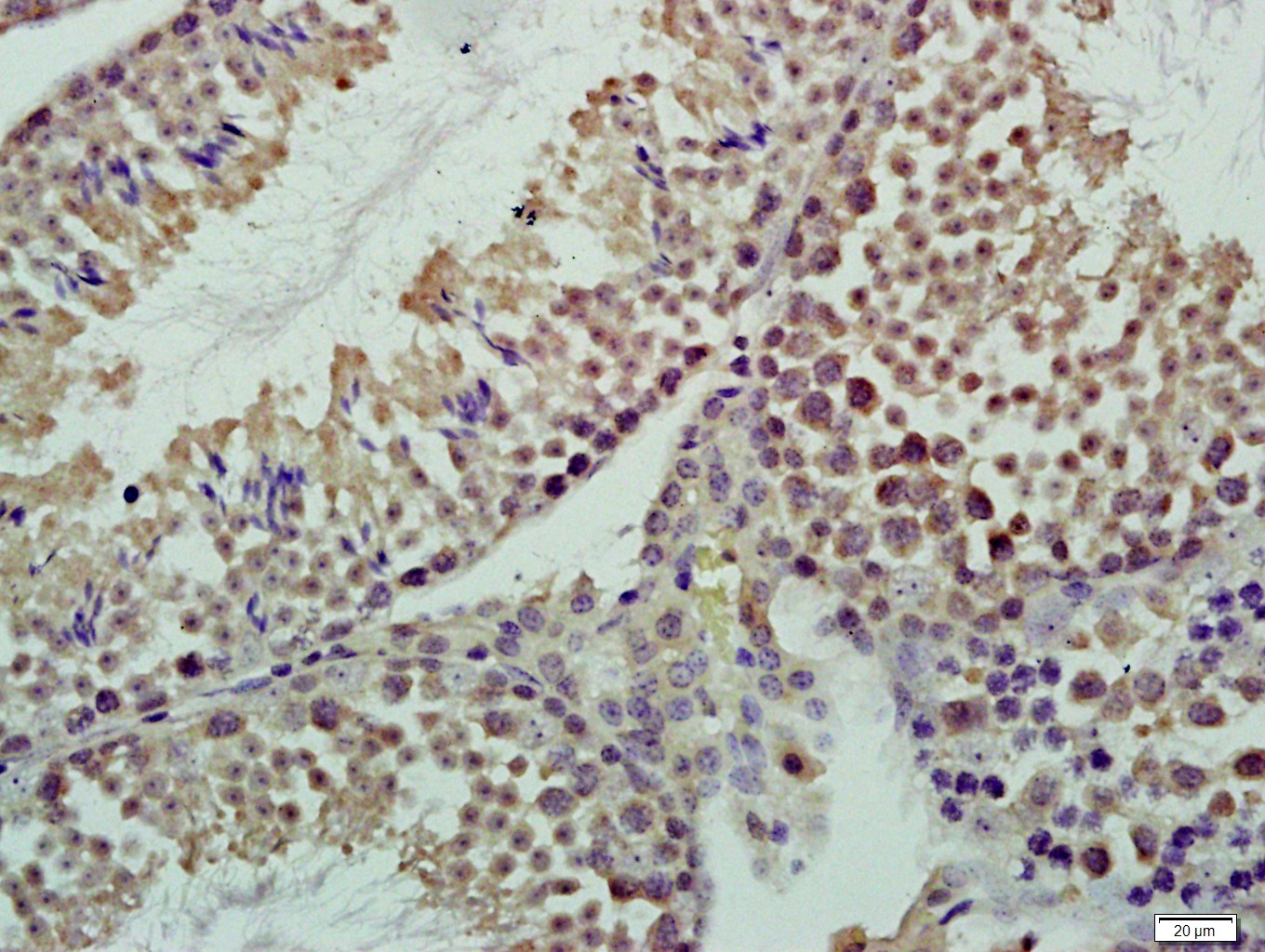![A431 whole cell and nuclear extracts (30 μg) were separated by 5% SDS-PAGE, and the membrane was blotted with CASC5 antibody [HL2158] (GTX638136) diluted at 1:1000. The HRP-conjugated anti-rabbit IgG antibody (GTX213110-01) was used to detect the primary antibody, and the signal was developed with Trident ECL plus-Enhanced. A431 whole cell and nuclear extracts (30 μg) were separated by 5% SDS-PAGE, and the membrane was blotted with CASC5 antibody [HL2158] (GTX638136) diluted at 1:1000. The HRP-conjugated anti-rabbit IgG antibody (GTX213110-01) was used to detect the primary antibody, and the signal was developed with Trident ECL plus-Enhanced.](https://www.genetex.com/upload/website/prouct_img/normal/GTX638136/GTX638136_T-44928_20230120_WB_Fraction_23013122_120.webp)
A431 whole cell and nuclear extracts (30 μg) were separated by 5% SDS-PAGE, and the membrane was blotted with CASC5 antibody [HL2158] (GTX638136) diluted at 1:1000. The HRP-conjugated anti-rabbit IgG antibody (GTX213110-01) was used to detect the primary antibody, and the signal was developed with Trident ECL plus-Enhanced.
CASC5 antibody [HL2158]
GTX638136
ApplicationsImmunoFluorescence, Western Blot, ImmunoCytoChemistry
Product group Antibodies
ReactivityHuman
TargetKNL1
Overview
- SupplierGeneTex
- Product NameCASC5 antibody [HL2158]
- Delivery Days Customer9
- Application Supplier NoteWB: 1:500-1:3000. *Optimal dilutions/concentrations should be determined by the researcher.Not tested in other applications.
- ApplicationsImmunoFluorescence, Western Blot, ImmunoCytoChemistry
- CertificationResearch Use Only
- ClonalityMonoclonal
- Clone IDHL2158
- Concentration1 mg/ml
- ConjugateUnconjugated
- Gene ID57082
- Target nameKNL1
- Target descriptionkinetochore scaffold 1
- Target synonymsAF15Q14, CASC5, CT29, D40, MCPH4, PPP1R55, Spc7, hKNL-1, hSpc105, outer kinetochore KNL1 complex subunit KNL1, ALL1-fused gene from chromosome 15q14 protein, blinkin, bub-linking kinetochore protein, cancer susceptibility candidate 5, cancer susceptibility candidate gene 5 protein, cancer/testis antigen 29, kinetochore null 1 homolog, kinetochore-null protein 1, microcephaly, primary autosomal recessive 4, protein phosphatase 1, regulatory subunit 55
- HostRabbit
- IsotypeIgG
- Protein IDQ8NG31
- Protein NameOuter kinetochore KNL1 complex subunit KNL1
- Scientific DescriptionThe protein encoded by this gene is a component of the multiprotein assembly that is required for creation of kinetochore-microtubule attachments and chromosome segregation. The encoded protein functions as a scaffold for proteins that influence the spindle assembly checkpoint during the eukaryotic cell cycle and it interacts with at least five different kinetochore proteins and two checkpoint kinases. In adults, this gene is predominantly expressed in normal testes, various cancer cell lines and primary tumors from other tissues and is ubiquitously expressed in fetal tissues. This gene was originally identified as a fusion partner with the mixed-lineage leukemia (MLL) gene in t(11;15)(q23;q14). Mutations in this gene cause autosomal recessive primary microcephaly-4 (MCPH4). Alternative splicing results in multiple transcript variants encoding different isoforms. Additional splice variants have been described but their biological validity has not been confirmed. [provided by RefSeq, Jan 2013]
- ReactivityHuman
- Storage Instruction-20°C or -80°C,2°C to 8°C
- UNSPSC41116161

![CASC5 antibody [HL2158] detects CASC5 protein at kinetochore by immunofluorescent analysis. Sample: HeLa cells were fixed in 4% paraformaldehyde at RT for 15 min. Green: CASC5 stained by CASC5 antibody [HL2158] (GTX638136) diluted at 1:500. Red: alpha Tubulin, a cytoskeleton marker, stained by alpha Tubulin antibody [GT114] (GTX628802) diluted at 1:1000. Blue: Fluoroshield with DAPI (GTX30920). CASC5 antibody [HL2158] detects CASC5 protein at kinetochore by immunofluorescent analysis. Sample: HeLa cells were fixed in 4% paraformaldehyde at RT for 15 min. Green: CASC5 stained by CASC5 antibody [HL2158] (GTX638136) diluted at 1:500. Red: alpha Tubulin, a cytoskeleton marker, stained by alpha Tubulin antibody [GT114] (GTX628802) diluted at 1:1000. Blue: Fluoroshield with DAPI (GTX30920).](https://www.genetex.com/upload/website/prouct_img/normal/GTX638136/GTX638136_44998_20230707_ICC_IF_23071123_181.webp)






